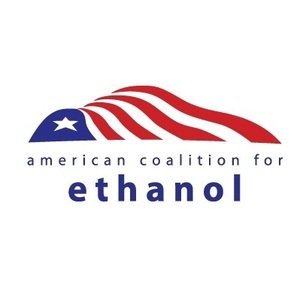Mexico court rules against E10 implementation, not E10 product

January 17, 2020
BY American Coalition for Ethanol
This week, the Mexico Supreme Court ruled against the regulation allowing for higher ethanol content in gasoline, based on the way in which the Energy Regulatory Commission implemented the change in 2017. In July of that year, the CRE decided to increase the maximum content of ethanol in gasoline as an oxygenate to 10 percent, up from 5.8 percent, outside of the major metropolitan areas of Mexico City, Guadalajara and Monterrey in the regulatory standard NOM-016-CRE-2016. American Coalition for Ethanol Senior Vice President and Market Development Director Ron Lamberty traveled to Mexico on behalf of the U.S. Grains Council over the past few years participating in technical ethanol workshops to educate fuel retailers and equipment suppliers about offering E10. Lamberty released the following statement after the Court’s ruling:
“The Mexico Supreme Court ruled against the process, not the product, and the oil/MTBE industry can't really be happy the court said the CRE needs to weigh economic benefit (which clearly favors ethanol) against risks to the environment (which also favor ethanol). The ruling won't go into effect for 180 days, and proving ethanol is cheaper and better than MTBE for the environment shouldn't even take 180 minutes.
“Oil and MTBE’s strategy translates in any language. They can't win based on science, so they try to throw a stick in ethanol’s spokes by going to the courts and filing a multitude of lawsuits to prevent ethanol from competing in the marketplace. In the rare instance they win a case, Big Oil distorts the decision as some sort of scientific indictment of ethanol, but lawyers and judges aren’t scientists, and I doubt any of them even believe gas, oil or MTBE is better for the environment than ethanol.”
Advertisement
Advertisement
Advertisement
Advertisement
Related Stories
The U.S. EPA on July 8 hosted virtual public hearing to gather input on the agency’s recently released proposed rule to set 2026 and 2027 RFS RVOs. Members of the biofuel industry were among those to offer testimony during the event.
The U.S. exported 31,160.5 metric tons of biodiesel and biodiesel blends of B30 and greater in May, according to data released by the USDA Foreign Agricultural Service on July 3. Biodiesel imports were 2,226.2 metric tons for the month.
The USDA’s Risk Management Agency is implementing multiple changes to the Camelina pilot insurance program for the 2026 and succeeding crop years. The changes will expand coverage options and provide greater flexibility for producers.
EcoCeres Inc. has signed a multi-year agreement to supply British Airways with sustainable aviation fuel (SAF). The fuel will be produced from 100% waste-based biomass feedstock, such as used cooking oil (UCO).
President Trump on July 4 signed the “One Big Beautiful Bill Act.” The legislation extends and updates the 45Z credit and revives a tax credit benefiting small biodiesel producers but repeals several other bioenergy-related tax incentives.
Upcoming Events










